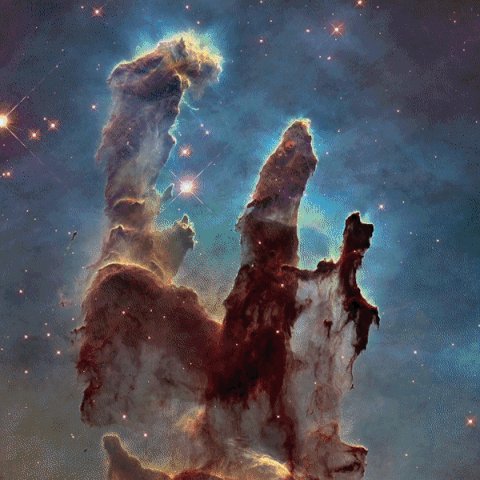HubbleClassicのTwitterイラスト検索結果。 7 件
#HubbleClassic The Southern Pinwheel Galaxy is ablaze with star formation.
New stars are born in glowing, pink clouds of gas along the edges of the galaxy's dark, spiraling dust lanes. Also called M83, the galaxy is one of the brightest in our night sky: https://t.co/YxjugEc8jr
#Hubble30 Enjoy not one but 30 #HubbleClassic images in our Flickr album "30 Years, 30 Images," featuring one cool image for each of Hubble's 30 years in space: https://t.co/SO4bzv319G
Compare the Eagle Nebula’s famous Pillars of Creation in different wavelengths of light with our new interactive! Shift from visible to infrared to X-ray light and explore your universe: https://t.co/5R8ETcX8Wp #HubbleClassic #M16 #NASA
#HubbleClassic With some imagination, this nebula looks like a glass-blown holiday ornament wrapped in a ribbon. Called NGC 5189, the intricate structure is actually glowing gas expelled by a dying Sun-like star. https://t.co/2DIpbnUGGl
This #HubbleClassic shows an area where stars are forming, not in our galaxy but in a nearby one known as the Small Magellanic Cloud. A brilliant star cluster called NGC 346 is swaddled in clouds of gas & dust from which the stars formed: https://t.co/hZCqO6q4ND
#HubbleClassic The sharpest view of the Orion Nebula ever captured by Hubble revealed never-before-seen stars, swirls of gas shaped by massive stars born in the giant stellar nursery, and dusty disks around young stars where planets might also be forming: https://t.co/I3sXeqwavY
#HubbleClassic New stars are being born in the finger-like tips of the Eagle Nebula’s Pillars of Creation, which stretch across 5 light-years of space: https://t.co/zF2uZtn1hQ








